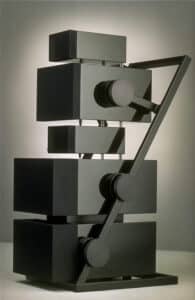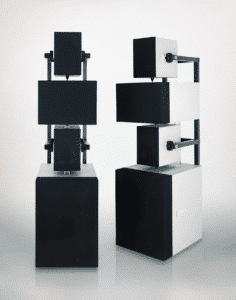our history
Crafting Sound Pieces Since 1978
Goldmund is founded in France and releases the T3 servo-controlled tonearm.

The launch of the direct-drive Studio turntable with an acrylic platter and “Mechanical Grounding” technology

The company is fully acquired by Michel Reverchon and relocated to Geneva, Switzerland.

The Reference turntable was presented and largely applauded at CES. The Studio Turntable LP was selected by the Absolute Sound (TAS) as one of the 12 Analog Components.

Birth of the first Goldmund Electronics – Mimesis 2 preamplifier and Mimesis 3 power amplifier.

The iconic Apologue speaker, designed by Claudio Rotta-Loria and selected for the MoMA in NYC.

Goldmund enters the digital world with its proprietary Alize DAC technology used in the Mimesis 10 and Mimesis 36 CD Transport.

The modular Epilogue speaker system is created with its unique metal alloy enclosures.

Goldmund introduces the Mini Logos Passive, the first high-end speaker dedicated to multichannel solutions.

Birth of the first Goldmund digital processor – Mimesis 24 – the first step towards the extreme multi-channel solution. R&D begins on the Proteus speaker modeling project.

Goldmund introduced the first active speaker – Mini Logos Active.

The limited edition Reference 2 turntable celebrates the 25th anniversary of the original model.

The Proteus HT Media Room becomes a reality with Goldmund products for both sound and image.

Launch of the 5000watt mono power amp, the Telos 5000.

Goldmund successfully implemented wireless technology on digital standalone speakers without compromising sound quality.

After the long success of Goldmund’s incredible amplifiers, Goldmund engineers were able to surpass past levels of performance with the launching of Goldmund NextGen Amplifiers.

Goldmund refines its captivating design: from Apologue-inspired to Gaia-inspired. The latest speaker collection embraces elegant modern shapes, departing from the conventional Goldmund frame found in previous models.

